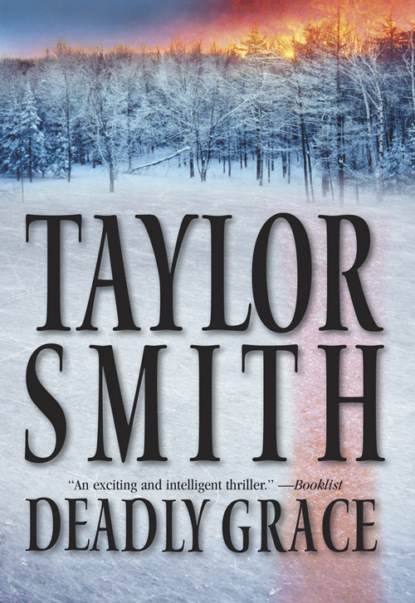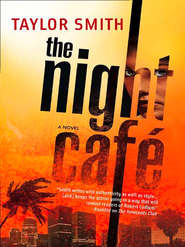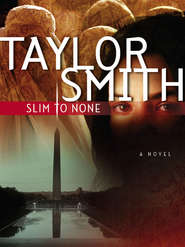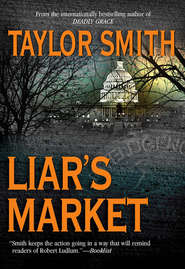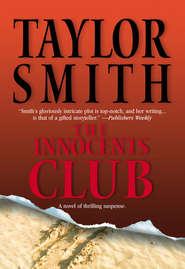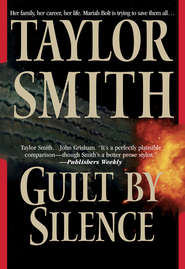По всем вопросам обращайтесь на: info@litportal.ru
(©) 2003-2024.
✖
Deadly Grace
Автор
Год написания книги
2018
Настройки чтения
Размер шрифта
Высота строк
Поля
By 9:00 a.m., he’d narrowed down his day’s work to the two or three cases that offered him the chance to get out in the field. Before the day was out, the Meade affair would push all the others aside. It wouldn’t be long after that that he would be pursuing the elusive mystery of Jillian and Grace Meade with a single-mindedness bordering on obsession.
He was reaching for his coat when Sean Finney’s rust-colored head and myopic gray eyes suddenly popped up over the beige fabric-covered divider that separated their desks. “Hey, Alex! What’s cookin’? You comin’ or goin’?”
“Going,” Cruz replied, regretting that he hadn’t moved a little faster. Engrossed in his review of background briefs, he hadn’t even heard the voluble, heavyset Finney arrive. Yet there he was, larger than life, with his gravely smoker’s voice and his unavoidable bonhomie.
“Where you headed?”
Cruz held up a blue sheet of paper, one of the stack of color-coded international alerts that crossed their desks daily. “Gotta track down a subject, try to take a statement.”
The alerts, part of a global cooperative effort between various national law enforcement agencies, sought information and assistance in locating wanted persons. Red bulletins warned police and border checkpoints to be on the lookout for fugitives with outstanding arrest warrants. Green ones were for career criminals, like child molesters or pornographers, likely to commit repeat offenses in several countries. Yellow notices meant missing persons, gray ones detailed organized crime groups. The white notices, most often directed to Sean Finney’s desk, provided details on stolen art and cultural objects. Black diffusions sought help in identifying dead bodies that had turned up with false or missing identification.
A blue alert like the one Cruz held in his hand was a request from a foreign police agency—in this case, Britain’s Scotland Yard—to trace a witness to a crime. Many of these witnesses were actually suspects who, if the evidence panned out, would eventually be the subjects of red Fugitive Wanted notices. Once the suspect was located, an extradition request would be the next thing to come down the pipeline.
It was in this blue-printed notice that Cruz had spotted the Washington address of a witness wanted for questioning regarding two homicides that had gone down in Britain a couple of weeks earlier. One of the victims had been a seventy-one-year-old former civil servant by the name of Vivian Atwater, who’d been shot in her London apartment, which was subsequently torched. The other was a sixty-year-old spinster in Dover, England, and the murder of Margaret Entwistle appeared to have followed a similar M.O. Both women were somehow linked to an American whose address, conveniently, was right there in the capital, only a couple of miles from his office.
“ScotlandYard sent this over. They’ve had a couple of what they’re calling ‘elder murders’over the past couple of weeks,” Cruz told Finney. “They’re asking us to have a talk with a woman here in D.C. who knew both vics, see if she can shed some light.”
“She? We got a female perp?”
“Don’t know. Apparently she’d met with both victims a few days before they were killed. The fact that she called on one of the victims might be coincidence, but two starts to look a little hinky.”
“You got that right. So you’re gonna run her down?”
“Gonna try,” Cruz said as he started to lock up his cabinets.
“Need some backup?”
“I think I can handle it.”
“Oh.” Finney sounded disappointed. Cruz felt the air move as he tossed his coat over the spare chair in his cubicle, then heard the hiss of a match as his neighbor lit the first of many cigarettes that fouled the air around his desk daily.
All the more reason not to let the guy ride along in his car. Finney leaned over the divider. “If you change your mind and decide you could use some help—”
“You bet. I’ll let you know.” Cruz nodded and headed out of his cubicle. The squad room had filled by now, agents and analysts sifting paper, typing up case notes and working phones that never seemed to stop ringing.
Cruz made it as far as the elevator before his luck ran out. Finney’s voice cut through the hum like a rusty hacksaw. “Hey, Alex, by the way—seen Maryanne lately?”
Caught in a trap of my own damn making, Cruz thought grimly, as heads popped up all around. Just then, the elevator door wheezed open. He leapt on, playing deaf and dumb as he hit the Close Door button.
According to the passport details supplied by Scotland Yard, the witness sought for questioning on the two open-book homicides in the U.K. possessed dual citizenship due to her parentage. Mother: English. Father: American. Date of birth: July 14, 1944. Place of birth: Drancy, France—which, technically, Cruz supposed, would make her a citizen of that country, too, if she ever cared to claim the right. A war baby, obviously. Thirty-five years old, born on the anniversary of the storming of the Bastille.
Cruz, too, had an historic birth date: December 7, 1941, the day of the surprise Japanese attack on Pearl Harbor. This coincidence might have seemed auspicious, had he thought about it at the time and been the type to find meaning in such things. If he had, perhaps he’d have been able to predict that, with such mutually bloody birth dates, he and this woman were bound to become the bitter adversaries they did.
The address supplied in the blue notice led him to a weathered, four-story brick apartment building near Dupont Circle in downtown Washington. On the intercom board between the building’s open outer door and the locked inner door, Jillian Meade’s name was listed next to 204. Cruz pressed the buzzer and waited, peering through the art deco stained glass windows of the inner door to a black and white tiled lobby. When there was no response after half a minute or so, he tried the buzzer again, then jiggled the handle on the lobby door. Locked. Turning back to the intercom, Cruz noticed a red plastic strip punched with the letters Super in white. He tried the buzzer next to it, with the same result as before. He had just about decided the trip had been a waste of time when he was startled by a crackled shout from the overhead speaker.
“I already called the cops, assholes!”
Taken aback, Cruz hesitated, then leaned toward the intercom grill. “Is this the building superintendent?”
“Who’s this?”
“Federal agent. I’d like a word, please.” Silence. “Sir?” When there was still no answer, Cruz rang again. Nothing. He was getting ready to lean on the buzzer for as long as it took when he heard a muffled but crotchety voice from the other side of the lobby door.
“Yeah, yeah, keep yer shirt on! I’m not jet-propelled, y’-know.”
Through the stained glass window, Cruz made out the image of a small, grizzled man in a dark jump suit limping across the lobby. The old man put one rheumy eye to the glass and hollered, “You’re no cop!”
“Yes, sir, I am,” Cruz said loudly, straining to be heard through the heavy door. “Sort of.”
“What ‘sort of’? Where’s your damn uniform? Ya either are or you’re not, fella, and if you’re not, then I can tell you right now, the real ones are on the way.”
“I’m a federal agent,” Cruz said, pulling out a leather folder and slapping it up against the glass.
The old man peered at it, then pulled back, head shaking. “Well, that looks real official, I’m sure, but I’m damned if I can read it, ’specially without my glasses.”
“I’m with the Federal Bureau of Investigation, sir.”
“The whoosis? Who are they when they’re at home?”
“FBI.”
The old man cupped a hand behind his ear. “Who?”
“Sir, if you could open the door—”
“Wait, wait, lemme open the friggin’ door.” The super pushed it open a crack but stood barring the way with his bantam rooster frame. Cruz towered over him, looking down at the shine on the top of his bald head.
“Lemme see that,” the caretaker said, waving a gnarled finger at Cruz’s ID folder. “Oh, the FBI! Why didn’t you say so? Jeez, Louise! I was figuring on the D.C. coppers.”
“I don’t know anything about that, sir. I’m just trying to locate one of your tenants.”
“You didn’t come on account of I called the police?”
“No, sir.”
“Well that just friggin’ figures, don’t it?” The old man peered around Cruz toward the outer door and the street beyond. “Called more’n three-quarters of an hour ago, but they never bloody show up when you need ’em.”
“What did you call about?”
He waved an impatient hand. “Tenants were complainin’ ’bout somebody hittin’ the intercom buzzers. Then they go answer and nobody’s there. Kids, prob’ly. It’s happened before. You get these punks’ll lean on all the buzzers, see. Chances are somebody upstairs is waitin’ for pizza delivery or something, unlocks the door without checkin’ who is it. Next thing I know, I got graffiti all over the hallways and units gettin’ broke into. Real pain in the ass. One of the tenants says she saw some frizzle-headed guy wandering around a while ago, lookin’ like he didn’t know where he was going.”
“Did she speak to him?”
“Nah. Said she figured he was there to visit somebody. Only mentioned it because when she came down here, she heard a couple of the neighbors complainin’ ’bout gettin’ buzzed. I woulda gone up to check it out myself, ’cept I got this hernia problem. Goin’ in to get it fixed next week. Otherwise, I got no problem goin’ after the little buggers myself and givin’ ’em a rap upside the head so they don’t come back here. Figured I better call the cops this time, though, let them do it. Only now,” the old man added resentfully, “you tell me you’re not even the cops.”
“Sorry. I’m sure they’re on the way if you called.”
“Course I called. I said it, didn’t I?”





